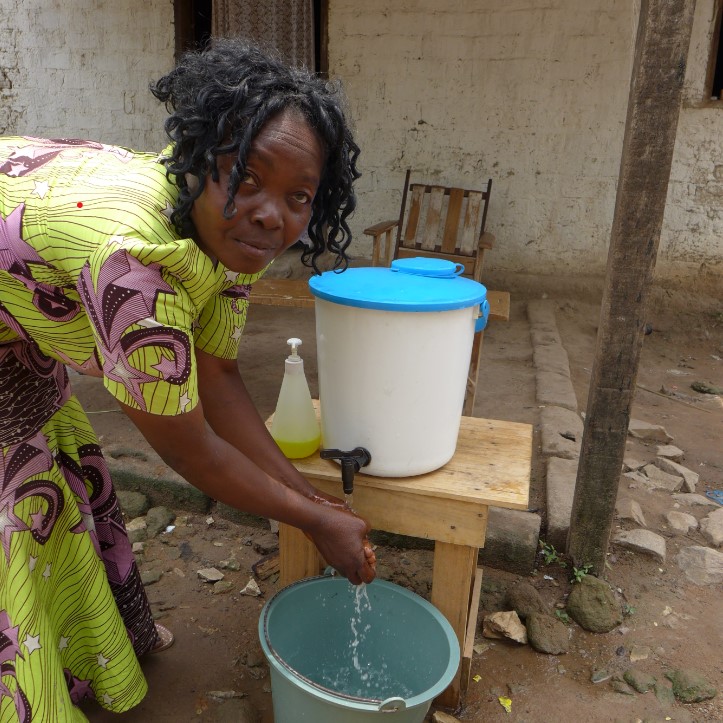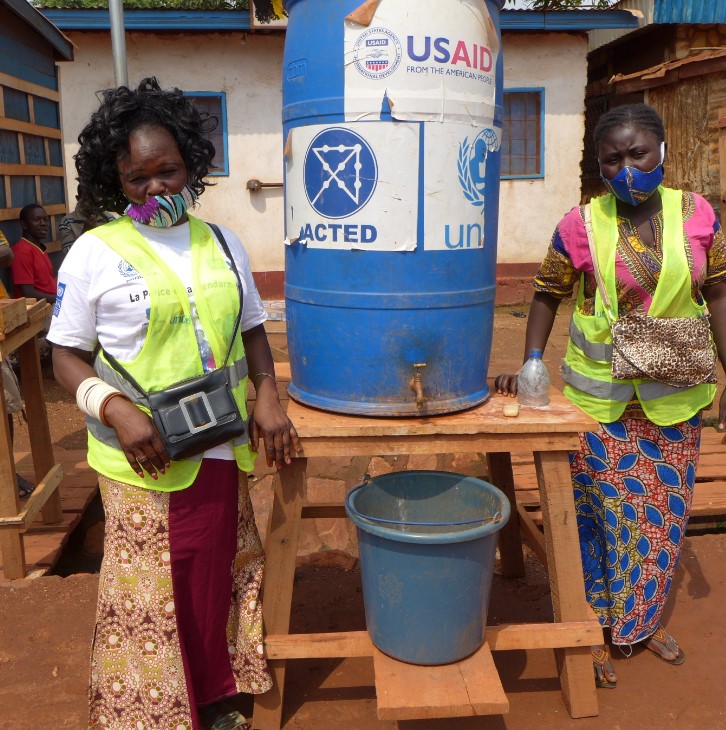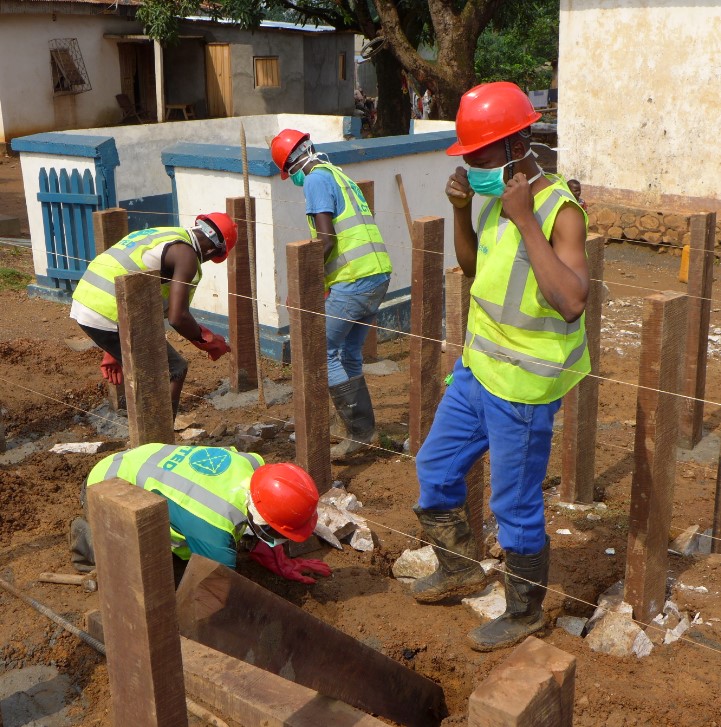One of the most basic measures recommended to avoid catching Covid-19 is regular hand-washing with soap and water. A seemingly very simple measure, but much less so when access to water and hygiene is not always readily accessible. This is the case for many families in Bangui, the capital of the Central African Republic (CAR), who are currently deeply suffering from the pandemic. The CAR currently has 4866 confirmed cases of Covid-19 (Most recent data: November 2020).
ACTED is contributing to the pandemic by supplying water and hygiene kits in the fourth and fifth districts of Bangui, with the support of UNICEF.
Distribution of essential hygiene materials
Blanche, one of ACTED’s beneficiaries, is adamant about people no longer crossing the threshold of her house without washing their hands first: “We have to take this virus seriously and respect the barrier gestures,” she reminds us.
ACTED teams have mobilized in the most affected neighborhoods of the city of Bangui for several months now. Consequently, they have already distributed 2,200 hygiene kits, each containing a soap, a bucket, and a tap. This essential equipment makes it possible to have water readily available in people’s homes, so that they can wash their hands regularly and protect themselves against the risk of contagion.

All united to fight against Covid-19
ACTED has been facilitating access to water distribution sites, in order to allow locals to obtain accessible and sustainable access to water. David, 36 years old, has been working with the ACTED team for the past 6 months. Supported by Amime, an ACTED liaison officer, David is currently working on the installation of a much-needed water pump: “We are doing everything we can to improve the situation and face this sanitary emergency.”
Jorgette, another individual supported by ACTED, is delighted to have access to water close to her home: “People are very happy, we have easy access to water. The situation is improving here, and that’s reassuring for me and my seven children.”
Teams have also installed handwashing facilities throughout the neighborhoods in Bangui, informing the neighborhood children and local residents on how to use the devices.

To ensure the proper usage of all these facilities, ACTED has implemented local management committees made up of local residents in the city. Several locals, active in the water management sector, work with ACTED teams to ensure the efficiency of the infrastructures that are put in place. Eugénie, a local hygienist, whose role is to ensure that the infrastructures remain in good condition, assures that “access to water is much better now, which is a great relief for the inhabitants of the neighborhood.”

Adopting the right gestures
Along with these interventions, ACTED teams are going door-to-door in neighboring districts to inform locals about both the effects, as well as protection measures, that concern Covid-19.
Joseph, who has been a neighborhood leader for nearly 20 years, operates a role that is close to his heart. The aim of neighborhood leaders is to ensure that activities run smoothly and that the challenges of preventing the virus are well understood, implemented, and respected. Joseph takes care of the 13,600 people living in his neighborhood: “ACTED has done a lot for the neighborhood, and we are grateful for that. The door-to-door sensitization carried out by ACTED’s teams has allowed the inhabitants of the neighborhood to understand what Covid-19 is, and especially the right gestures to fight against it.”
Community meetings are also an approach ACTED utilizes as an opportunity to share concerns and questions, and to adapt to such interventions.
